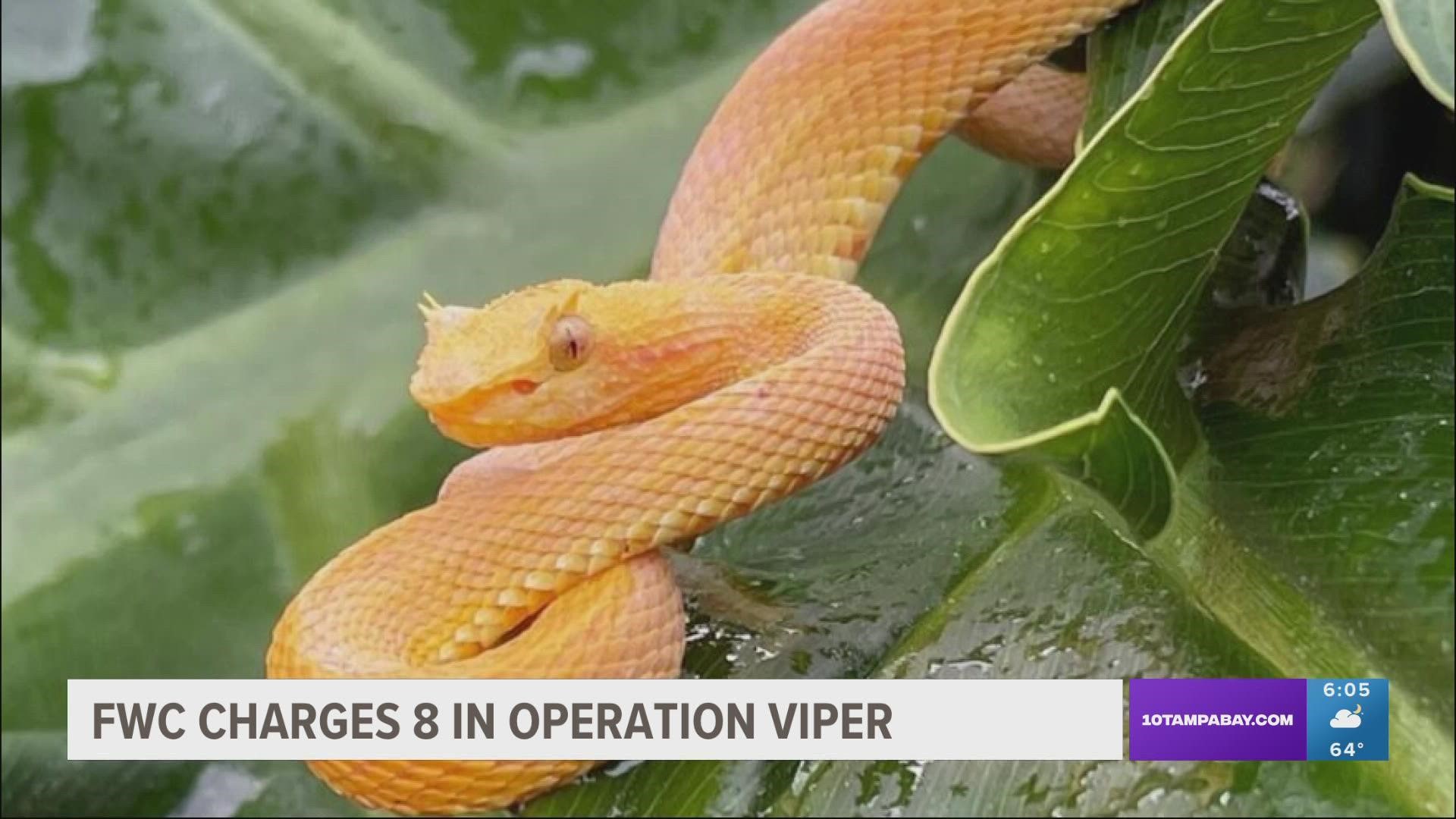TAMPA, Fla. — The Florida Fish and Wildlife Conservation Commission has released details of a two-year undercover investigation called “Operation Viper" which ended with a total of eight people being charged with illegally trafficking non-native venomous snakes.
While you would think most people would want to stay as far away as they could from such highly venomous reptiles, FWC says there’s actually a strong underground market for them.
“So, we assembled teams of FWC investigators and officers. And they went throughout the state to different counties and actually arrested several individuals for the trafficking of venomous reptiles,” FWC Officer Randy Bowlin explained.
Fish and wildlife officers went undercover for two years during the operation, infiltrating the black market for the highly illegal and exceedingly dangerous species.
“Many of these snakes can cause serious bodily injury or even death,” Bowlin said.
In all, eight people were arrested – including one from the Tampa Bay area.
Delvin Sasnett, 32, faces more than a dozen charges stemming from possession, transporting and transferring prohibited species.
A records search shows he also has a history of animal abuse charges.
“These rules are in place for public safety. And to protect Florida ecosystems,” Bowlin said. “A lot of these animals could really be interesting people, but also they're imported from all over the world, and they bring disease with them and could affect our natural habitat.”
Because these snakes are so dangerous, FWC officers assigned to "Operation Viper" needed specialized training.
“A lot of them were already capable of handling venomous reptiles, but we went above and beyond and gave them extensive training on handling some of the snakes,” Bowlin said. “We had, for instance, spitting cobras that we really had to train up for.”
The snakes come from places like Asia, Australia and Africa along with Central and South America. They don’t belong here and if they somehow escaped into the wild, FWC says the deadly reptiles could proliferate the way pythons have.
FWC says some of the people arrested are established snake dealers. Investigators say black-market transfers often occur with illegally obtained snakes being sold through a legitimate, properly permitted facility without providing information about their real place of origin.
“It’s hard to focus on one snake but we had countless cobras, Gabon vipers, bushmaster snakes, types from Australia, and many extremely, extremely dangerous snakes,” Bowlin said.
FWC hopes the arrests send a message to others who might be involved in the illegal trade of these non-native venomous snakes, letting them know that they’re aware of it and that they are making arrests.
In fact, they say, it’s likely more people will be charged.

